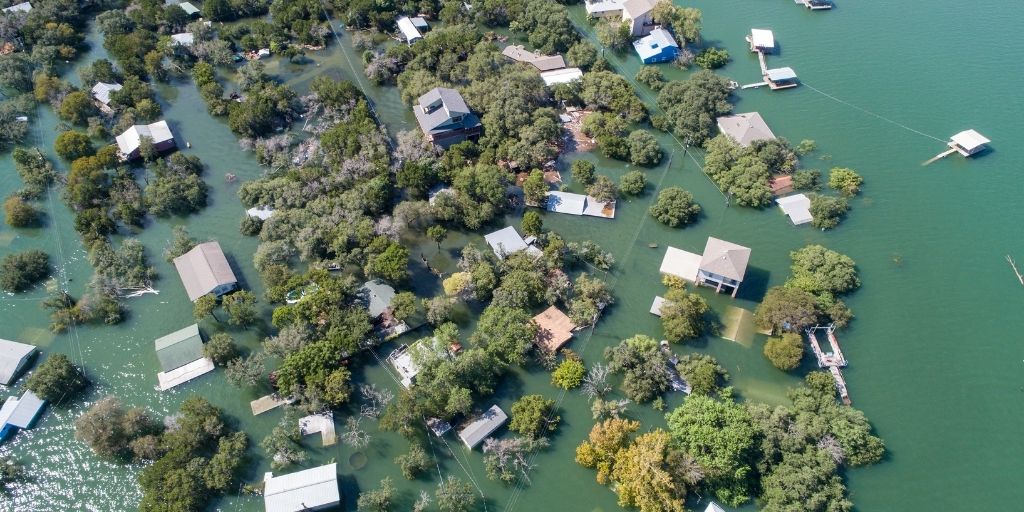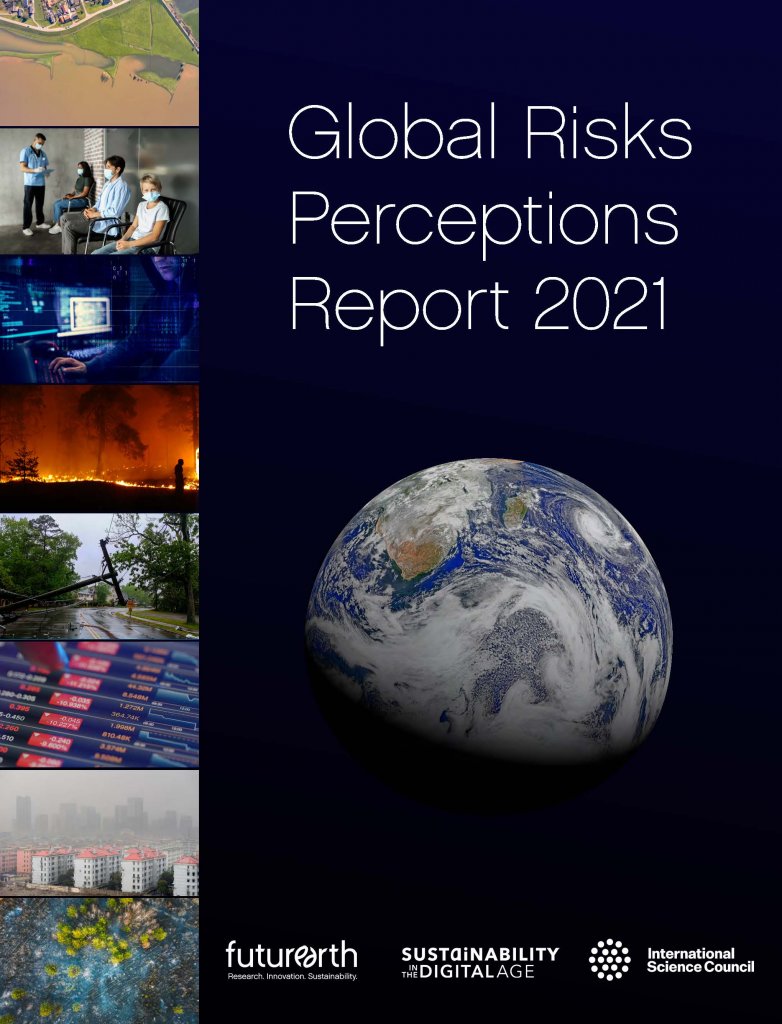
Given the manifestations of global risks which have taken place over the last year, the time is ripe to reassess scientists’ perceptions of global risks as a critical contribution to dialogues about potential solutions.
The 2021 Global Risks Scientists’ Perceptions Report draws on the results from an invitation-only survey was sent to targeted groups with known membership including scientists from all fields and disciplines. This also included groups of peer- and self-nominated experts from Future Earth and the International Science Council, recruited to build a community around this survey work. Over 200 scientists completed the survey. Respondents were asked to:
🔀 Scientists systematically ranked likelihood and impact of global risks higher than members of business and economic communities.
🌳 All surveyed communities rated environmental risks among the most urgent global risks humanity faces today and as highly interconnected with other global risks.
⚡Five risks emerge as most likely to form an interconnected cluster of risks and lead to a global systemic crisis: failure to take climate action – biodiversity loss – infectious disease – extreme weather events – human environmental damage.
⚖ Scientists highlighted the need to prioritize inequality as a standalone risk in assessments and perception analyses.
💻Technological risks are now seen as more likely to occur, compared to earlier findings.
🌐 Business and science communities are only two groups of many more with perspectives relevant to dialogues about global risks. There is a continued need to learn from each other and build a global community around mitigating risks.
There is increasing recognition across multiple sectors of society that the global risks we face are increasingly complex, uncertain, and systemic. Understanding global risks is essential to effectively respond to and govern them.
The collaboration between Future Earth, Sustainability in the Digital Age, and the International Science Council aims to contribute to the discourse that has been shaped through the World Economic Forum’s important work with an international analysis of scientists’ perceptions of global risks. In doing so, we hope to enrich the conversation around mitigation strategies already underway as well as to spark new and more inclusive dialogues.
Risk perceptions are important to unpack because they affect our ability to prepare and act. The 2021 global risks perceptions report provides a snapshot of the top global risks from the points of views of scientists and contributes to the much needed transdisciplinary conversations on risk.
Anne-Sophie Stevance, Senior Science Officer, International Science Council
The 2021 report calls for more urgency to encouraging broader engagement with all communities in mitigating future risk.
In a time where global risks are manifesting with increasing threat to human safety, it is time to sound the call more urgently than ever before for broader societal engagement and deliberation to mitigate risks. To effectively and fairly address global risks, a plurality of viewpoints must be represented in all circles making decisions on how to foresee, act on, and circumvent global threats.
This launch today has focused on how we can use our transdisciplinarity to think collectively together, to prepare for the emerging future. We do so, knowing that we have to address what we’re facing with deep humility, that we are in a VUCA world of Volatility, Uncertainty, Complexity, and Ambiguity. Understanding the full landscape of risk really will require a collective intelligence, to contribute to visioning and understanding with clarity, the agile ways we can move forward.
Dr. Eliane Ubalijoro, Global Hub Director for Future Earth Canada and Executive Director of Sustainability in the Digital Age

Image by RoschetzkyI stock Photo from Getty Images Pro